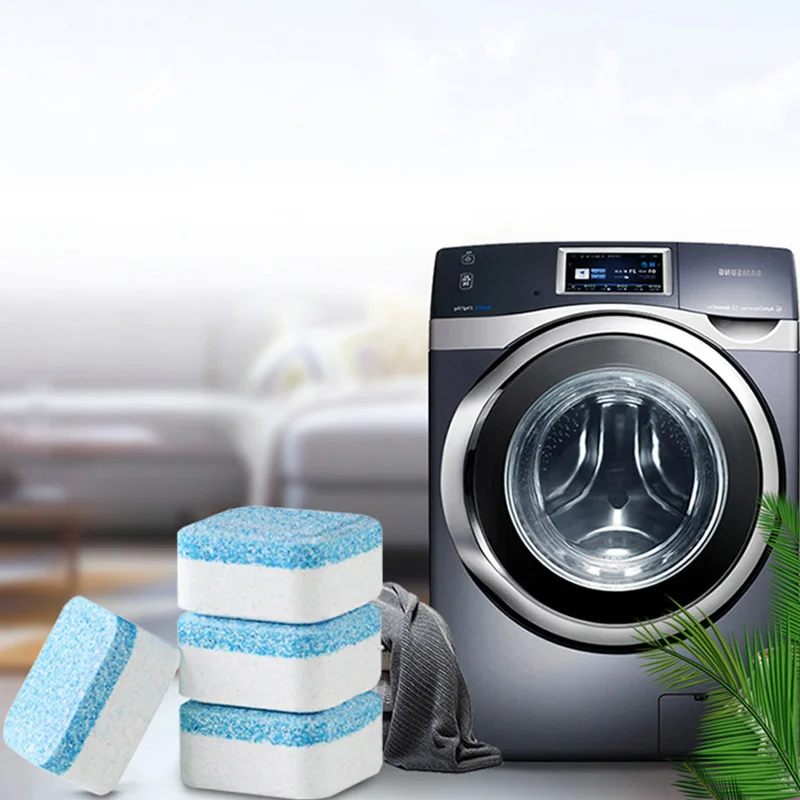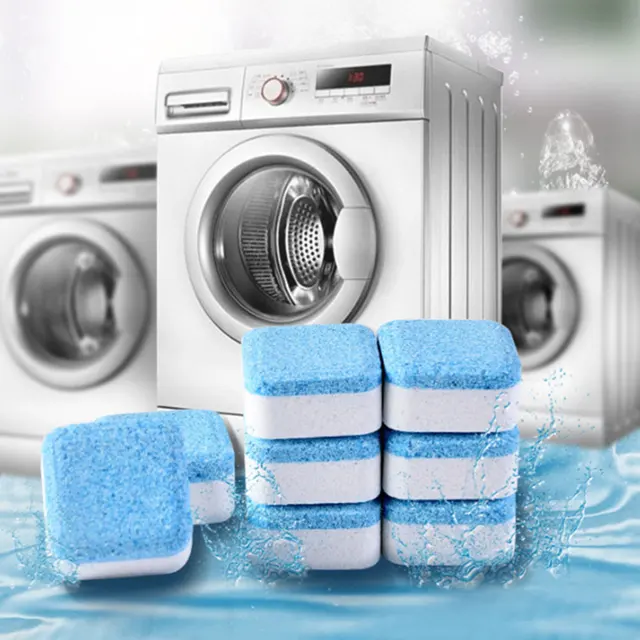Common Causes of Washing Machine Odors
When your washing machine stinks, it can be both unpleasant and frustrating. Identifying the common causes behind the odors is key to finding a solution. Here are some of the typical reasons why your washer might start to smell bad:

- Mold and mildew: This usually happens when moisture remains in the machine after washing, providing the perfect environment for these fungi to grow.
- Bacteria buildup: Dirty clothes bring in bacteria, which can linger and multiply if the washer isn’t cleaned regularly.
- Detergent residue: Using too much detergent or fabric softener can lead to a buildup, which, over time, starts to smell.
- Poor drainage: If water isn’t draining well, it can become stagnant, creating a breeding ground for odors.
- Infrequent use: If you don’t use your washing machine often, standing water can lead to bad smells.
To eliminate washing machine odors, address these common causes with regular cleaning and maintenance.
Step-by-Step Guide to Cleaning a Smelly Washing Machine
If your washing machine stinks, a deep clean may be the fix. Let’s break it down into steps.
Step 1: Inspect and Clean the Detergent Dispensers
Start by checking the detergent and fabric softener dispensers. Remove them and scrub away any residue with hot water and vinegar. This prevents mold and bacteria buildup.
Step 2: Sanitize the Washing Machine Drum
Next, tackle the washer drum. Mix 2 cups of white vinegar with hot water and run a cycle. Follow with a cycle using half a cup of baking soda. This combo tackles odor-causing bacteria.
Step 3: Clean and Maintain the Door Gasket
For front-loaders, gaskets are common odor culprits. Wipe the door gasket with a vinegar-soaked cloth. This removes mold and residue that can trap smells.
Step 4: Address Drainage and Plumbing Issues
Check the drainage system for clogs or issues. Clear any blockages and make sure water drains properly. This prevents stagnant water, which causes stink.
Step 5: Rinse and Dry the Washing Machine Thoroughly
Run an extra rinse cycle with hot water to wash away any cleaning agents. Leave the door open after, allowing the washer to dry completely. This helps keep odors away.
Regularly cleaning your washing machine is crucial for keeping it odor-free. Tackle each step thoroughly, and you’ll be on your way to a fresher-smelling laundry experience.
Tips for Preventing Future Odors
To stop washing machine odors before they start, follow these tips:
- Dry the washer after each use: Keep the door open to air out the washer. This dries out any moisture and hinders mold growth.
- Use the right detergent amount: Too much detergent leads to residue buildup. Follow the detergent label’s instructions.
- Remove clothes quickly: Don’t let damp clothes sit. Move them to the dryer right after washing.
- Run hot water cycles: Occasionally use a hot water cycle to keep the inside of the machine clean.
- Clean dispensers regularly: Soap and fabric softener dispensers need cleaning to avoid gunk that smells.
- Stay on top of maintenance: Regularly inspect and maintain your washing machine to prevent odor build-up.
Stick to these preventative steps and your washing machine should stay fresh and clean.
 Solutions for Persistent Washing Machine Smells
Solutions for Persistent Washing Machine Smells
Even after a thorough cleaning, some washing machine odors may persist. If your washing machine still stinks, try these additional solutions:
- Use a Commercial Cleaner: Opt for a cleaner designed for washing machines. Follow the instructions closely for the best results.
- Check for Trapped Items: Sometimes, small items can get trapped in the washing machine, causing smells. Inspect around the drum, in gaskets, and filters.
- Service the Drain Hose: A clogged drain hose can cause odors. Detach the hose, rinse it out, and check for blockages. If necessary, replace it.
- Inspect the Seals: Over time, seals can degrade and trap odors. Replace any worn seals to stop smells from lingering.
- Consider a Professional Clean: If DIY methods don’t work, hiring a professional to deep-clean your washer might be worthwhile.
Tackling these steps can help when your washing machine stinks even after regular cleaning. A persistent smell can be a sign of a deeper issue that may need extra attention or professional help.
Recommendations for Routine Washing Machine Maintenance
Keeping your washing machine in top shape helps avoid odors. Here’s what to do regularly:
- Check for leaks: Inspect hoses for signs of wear. Replace them if needed to prevent water issues.
- Wipe down surfaces: After each use, clean the machine’s exterior and interior with a damp cloth.
- Leave it open: Post-wash, keep the door ajar. This lets air flow and dries out moisture.
- Clean filters regularly: Look at the manual to find the lint filter and clean it often.
- Run empty hot cycles: Monthly, operate the machine on a hot cycle without clothes to dissolve residue.
- Use machine cleaners: Consider specialist cleaners for a thorough clean once in a while.
By following these simple steps, you’ll keep your washing machine fresh and extend its life.
Understanding the Difference Between Front-Load and Top-Load Washer Odors
Front-load and top-load washing machines each have their unique design aspects. These differences can affect how and why they develop odors. Knowing these distinctions is vital for proper cleaning and maintenance. Let’s explore the differences in odor issues with these two washer types.
Front-Load Washers
Front-load washers are prone to washing machine stinks for several reasons. They have a door seal which can trap water and cause mildew. Here’s what causes the smell in front-load washers:
- Sealed environment: The tight seal can hold moisture, creating mold or mildew odor.
- Washer gasket: The rubber gasket around the door is a common spot for water to collect and bacteria to grow.
- Less Water Use: They use less water, so there’s a higher chance of soap and softener residue.
- More maintenance: Front-loaders need more cleaning of the gasket and drum to prevent smells.
Top-Load Washers
Top-load washers have their own set of issues that can lead to odors. While they may not have the same sealing problems, they still require regular cleaning. Here’s what you should know about top-load machines:
- Looser seals: The top doesn’t usually seal as tightly, so it’s less likely to trap moisture.
- Residue build-up: Soap scum and fabric softener can still build up, which leads to bacteria growth and odors if not cleaned.
- Lid design: Sometimes, the lid can still trap moisture if not left open to dry, leading to mildew.
- Drainage problems: Like front-loaders, poor drainage can cause water to become stagnant and smelly.
Understanding the design and challenges of your washing machine type is crucial. It guides you to target the right areas during cleaning and maintenance. This understanding can keep your washing machine fresh and extend its lifespan. Next, we’ll address frequently asked questions to help further resolve common washing machine odor problems.
 FAQ: Tackling the Most Common Washing Machine Smell Concerns
FAQ: Tackling the Most Common Washing Machine Smell Concerns
Got a washing machine that stinks? You’re not alone. Here are quick answers to common questions about musty washer odors.
Why does my washing machine smell bad after cleaning it?
If your washing machine still smells after cleaning, residue may linger. Run a hot cycle with vinegar and baking soda to eliminate remaining bacteria and odors.
What is the best way to clean a washing machine with vinegar and baking soda?
Pour 2 cups of vinegar into the drum or detergent dispenser. Run a hot wash cycle. Follow up with a hot rinse cycle that includes a half-cup of baking soda.
Can leaving the washing machine door closed cause odors?
Yes, a closed door traps moisture, creating an ideal environment for mildew and mold. Leave the door open to let it air out.
How often should I clean my washing machine to prevent smells?
Clean it once a month and after any heavy use. Regular cleaning stops build-up that can cause odors.
Are front-load washers more likely to develop odors?
Front-load washers may hold more moisture in the gasket, leading to potential mold and smell problems.
Can too much laundry detergent cause my washing machine to stink?
Yes, excess detergent can build up and decay inside the machine, causing foul smells.
Should I use bleach or vinegar to clean my washing machine?
Vinegar is great for regular cleaning, but use bleach if you notice persistent mold or mildew.
In summary, if your washing machine stinks, simple routine steps and regular cleaning can help keep those odors away. Tackle odors with monthly cleaning, prompt action on smells, and by leaving the door open between uses. Remember to use proper amounts of detergent and choose cleaning agents that work best for the condition of your washer.
